Prince Charles: climate change 'major reason' for war in Syria
In interview ahead of climate change summit, the heir to the throne calls for massive change
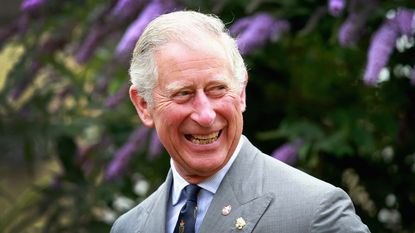
Prince Charles has suggested that climate change was indirectly responsible for the Syrian civil war, linking the rise of Islamic State and similar violent factions to the country's six-year drought.
In an exclusive interview with Sky News, the Prince of Wales appeared to connect the conflict in Syria, which the Syrian Observatory for Human Rights says has killed more than 250,000 people, with the effects of climate change in the Middle East.
Talking to Rhiannon Mills ahead of COP21, the UN's climate summit, the Prince expressed concern that increasing scarcity of natural resources would lead to a corresponding increase in conflict.
Subscribe to The Week
Escape your echo chamber. Get the facts behind the news, plus analysis from multiple perspectives.

Sign up for The Week's Free Newsletters
From our morning news briefing to a weekly Good News Newsletter, get the best of The Week delivered directly to your inbox.
From our morning news briefing to a weekly Good News Newsletter, get the best of The Week delivered directly to your inbox.
"There's very good evidence indeed that one of the major reasons for this horror in Syria, funnily enough, was a drought that lasted for about five or six years, which meant that huge numbers of people in the end had to leave the land," he said.
A study published in Proceedings of the National Academy of Sciences in March this year identified the prolonged drought as one of the factors that contributed to the Syrian conflict, reports Mashable. However, the study's authors stopped short of naming climate change the root cause of the violence.
"We would not say and did not even attempt to say that the uprising was caused by climate change," said the study's lead author, Colin Kelley.
Prince Charles's remarks provoked an immediate reaction, with his name quickly becoming a trending topic on Twitter. While many agreed with the Prince's observation, there were also questions about whether the Prince's political involvement is befitting of a future monarch.
Political commentator Andrew Pierce tweeted that Prince Charles should "stick to talking to his plants", while Reuters pointed out that this is not the first time the Prince has faced allegations of meddling in politics.
Charles also warned of "chaos" if the nations of the world fail to commit adequate resources to tackling climate change. "The difficulties in 2008 with the financial crash – that was a banking crisis. But we're now facing a real possibility of nature's bank going bust," he said. The heir to the throne, who has frequently been outspoken on environmental issues, went on to brand the 2009 COP15 summit in Copenhagen a "disaster".
Create an account with the same email registered to your subscription to unlock access.
Sign up for Today's Best Articles in your inbox
A free daily email with the biggest news stories of the day – and the best features from TheWeek.com
-
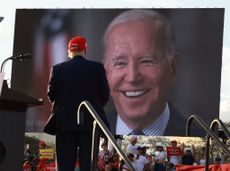 'Voters know Biden and Trump all too well'
'Voters know Biden and Trump all too well'Instant Opinion Opinion, comment and editorials of the day
By Harold Maass, The Week US Published
-
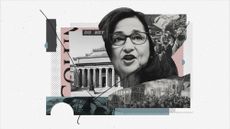 Is the Gaza war tearing US university campuses apart?
Is the Gaza war tearing US university campuses apart?Today's Big Question Protests at Columbia University, other institutions, pit free speech against student safety
By Joel Mathis, The Week US Published
-
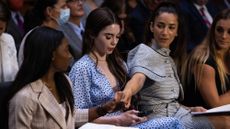 DOJ settles with Nassar victims for $138M
DOJ settles with Nassar victims for $138MSpeed Read The settlement includes 139 sexual abuse victims of the former USA Gymnastics doctor
By Justin Klawans, The Week US Published
-
 Woman accidentally puts nan in washing machine
Woman accidentally puts nan in washing machineTall Tales And other stories from the stranger side of life
By Chas Newkey-Burden, The Week UK Published
-
 Bangladesh dealing with worst dengue fever outbreak on record
Bangladesh dealing with worst dengue fever outbreak on recordSpeed Read
By Catherine Garcia Published
-
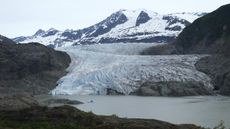 Glacial outburst flooding in Juneau destroys homes
Glacial outburst flooding in Juneau destroys homesSpeed Read
By Catherine Garcia Published
-
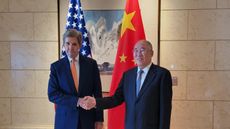 John Kerry in Beijing: how red China is turning green
John Kerry in Beijing: how red China is turning greenfeature Climate talks set to resume between Washington and Beijing this week
By Arion McNicoll Published
-
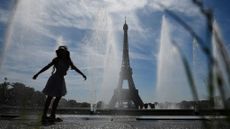 Study: Nearly 62,000 people died in 2022 European heatwave
Study: Nearly 62,000 people died in 2022 European heatwaveSpeed Read
By Catherine Garcia Published
-
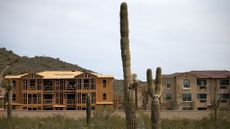 Arizona limits construction in Phoenix area amid groundwater shortage
Arizona limits construction in Phoenix area amid groundwater shortageSpeed Read
By Catherine Garcia Published
-
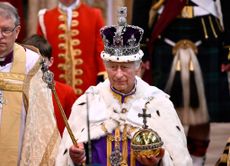 Charles III crowned at Westminster Abbey in historic ceremony
Charles III crowned at Westminster Abbey in historic ceremonySpeed Read
By Justin Klawans Published
-
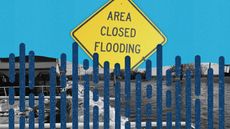 How bad are this year's Mississippi River floods?
How bad are this year's Mississippi River floods?Speed Read "Everybody's plan along the river has been put to the test"
By David Faris Published